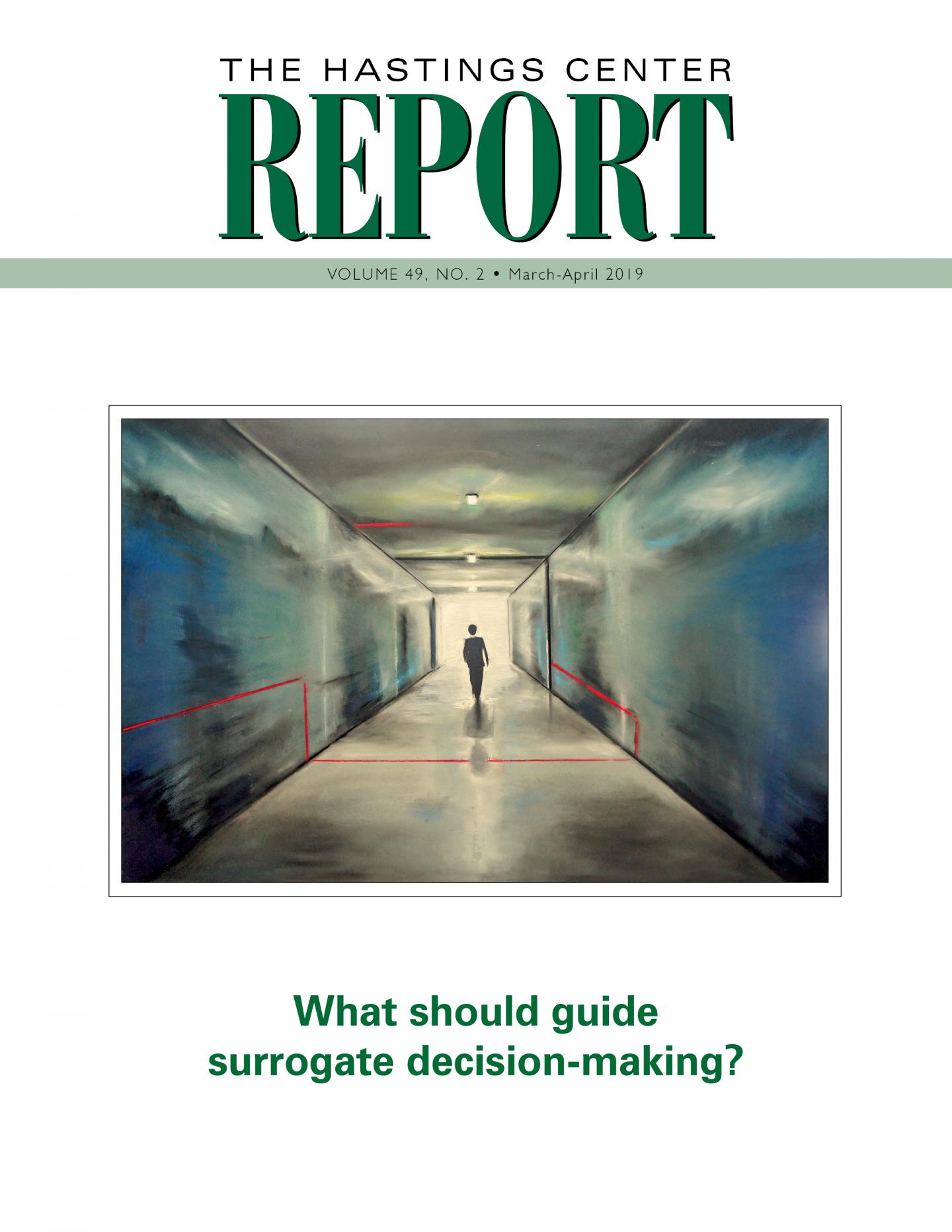
Credit: On the cover: Somebody Wants to Know, by Ludovic Laffineur, soft pastel on paper, 120 x 85 cm.
Courtesy of the artist. www.ludoviclaffineur.be
Federal Right to Try: Where Is It Going?
Kelly Folkers, Carolyn Chapman, and Barbara Redman
Many patients with terminal or serious illness who have exhausted their treatment options want access to experimental therapies they hope will help them. A federal right-to-try law, enacted in May 2018, permits physicians to treat patients with investigational medical products without authorization from the Food and Drug Administration, under specific circumstances. But this right-to-try pathway may have undermined the FDA’s role in monitoring the safety and efficacy of drugs, and it might even have created a loophole by which pharmaceutical companies can sell unapproved drugs to the public. Kelly Folkers is a research associate, Carolyn Chapman is a postdoctoral fellow, and Barbara Redman is an associate at the Division of Medical Ethics at the NYU School of Medicine.
Citizen Science and Gamification
Karola V. Kreitmar and David C. Magnus
Citizen science describes the concept of nonprofessional volunteers assisting researchers in collecting data with the goal of contributing to scientific knowledge. Examples include playing games like Foldit and EteRNA to experiment with the shapes of biological materials, which has led to important scientific or medical advancements. But questions remain about how to conceive of these gamers: are they, in effect, scientific researchers? Are they research participants? Or are they simply players? Karola V. Kreitmar and David C. Magnus write that they occupy a position different from existing roles, and new standards and guidelines are needed to address their participation. The authors also propose that gamers be given appropriate credit and compensation for their discoveries. Kreitmar is an assistant professor in the Department of Medical History and Bioethics at the University of Wisconsin-Madison; Magnus is the Thomas A. Raffin professor of medicine and biomedical ethics and a professor of medicine and pediatrics at Stanford University.
At Law: Conscience and Religious Freedom Division Marks Its First Anniversary with Action
Sandra H. Johnson
It’s been a year since the Trump administration established the Conscience and Religious Freedom Division within the Department of Health and Human Services’ Office of Civil Rights to increase the legal protection of religious and conscience objections in health care. The division “is already having a significant impact,” writes Sandra H. Johnson. It “is causing health care entities, including hospitals, research organizations, and clinics, to change policies and practices.” She continues: “Administrative agencies also shape the law in what they decide not to pursue. For example, OCR has suspended enforcement of the Affordable Care Act prohibition against gender?identity discrimination.” Johnson is a professor emerita of law and health care ethics at the Center for Health Law Studies at Saint Louis University School of Law.
Also in this issue:
- Changing the Question on surrogate decision-making
- Empathetic Practice: The Struggle and Virtue of Empathizing with a Patient’s Suffering
- Perspective: Achieving Meaningful Access to Medicaid
###
Contact Susan Gilbert, director of communications
The Hastings Center
845-424-4040 x244
[email protected]
Media Contact
Susan Gilbert
[email protected]




